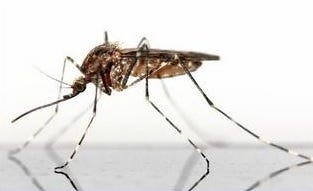
FORT WALTON BEACH, Florida — The Florida Department of Health in Okaloosa County is issuing a mosquito-borne illness advisory for residents and visitors Aug. 19, as one human case of West Nile illness is now confirmed in Okaloosa County.
See the mosquito bite prevention chart provide by DOH-Okaloosa>>
Okaloosa County Mosquito Control and DOH-Okaloosa continue to implement surveillance and prevention efforts.
DOH-Okaloosa reminds residents and visitors to avoid being bitten by mosquitoes and to take basic precautions to help limit exposure. To protect yourself from mosquitoes, you should remember to “Drain and Cover”:
DRAIN standing water to stop mosquitoes from multiplying
●Drain water from garbage cans, house gutters, buckets, pool covers, coolers, toys, flower pots or any other containers where sprinkler or rain water has collected.
●Discard old tires, drums, bottles, cans, pots and pans, broken appliances and other items that aren't being used.
●Empty and clean birdbaths and pet's water bowls at least once or twice a week.
●Protect boats and vehicles from rain with tarps that don’t accumulate water.
●Maintain swimming pools in good condition and appropriately chlorinated. Empty plastic swimming pools when not in use.
COVER skin with clothing or repellent
Clothing: Wear shoes, socks, and long pants and long-sleeves. This type of protection may be necessary for people who must work in areas where mosquitoes are present.
Repellent: Apply mosquito repellent to bare skin and clothing.
1. Always use repellents according to the label. Repellents with DEET, picaridin, oil of lemon eucalyptus, para-menthane-diol, and IR3535 are effective.
2. Use mosquito netting to protect children younger than 2 months old.
3. Apply insect repellent to exposed skin or onto clothing, but not under clothing.
4. In protecting children, read label instructions to be sure the repellent is age-appropriate. According to the Centers for Disease Control and Prevention (CDC), mosquito repellents containing oil of lemon eucalyptus should not be used on children under the age of three years. DEET is not recommended on children younger than two months old.
5. Avoid applying repellents to the hands of children. Adults should apply repellent first to their own hands and then transfer it to the child’s skin and clothing.
6. If additional protection is necessary, apply a permethrin repellent directly to your clothing. Again, always follow the manufacturer’s directions.
COVER doors and windows with screens to keep mosquitoes out of your house
●Repair broken screening on windows, doors, porches, and patios.
For more information on what repellent is right for you, consider using the Environmental Protection Agency’s search tool to help you choose skin-applied repellent product, http://bit.ly/2bzYkIs.
The department continues to conduct statewide surveillance for mosquito-borne illnesses, including West Nile virus infections, Eastern equine encephalitis, St. Louis encephalitis, malaria, chikungunya, dengue and Zika. Residents of Florida are encouraged to report dead birds via the Florida Fish and Wildlife Conservation Commission’s site, legacy.myfwc.com/bird/default.asp. For more information, visit DOH’s website, www.floridahealth.gov/diseases-and-conditions/mosquito-borne-diseases/index.html.
This article originally appeared on Crestview News Bulletin: Okaloosa health department issues West Nile advisory (FILE)
